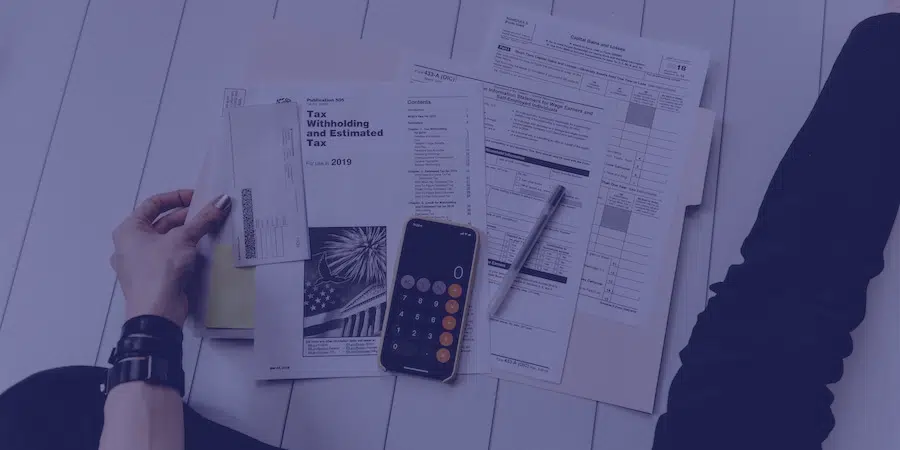Managing a dance studio in 2023 was no easy feat. If you took a financial hit due to COVID, it’s important to identify savings where you can. Thankfully, businesses do have additional tax relief options in 2023. Not sure where to begin when it comes to the dance studio tax deductions you qualify for? We have you covered. Read on for the most important potential write-offs to keep in mind as you begin collecting receipts and financial statements for your 2023 taxes.
What Are The Basics Of Dance Studio Owner Tax Deductions?
While we’ll discuss some of the common studio deductions in this post, it’s important to talk to a tax professional about your unique circumstances. Your dance studio tax deductions in 2023 will depend on a variety of factors, such as whether you’ve structured your business as a Limited Liability Company (LLC) or another entity. A tax preparer can guide you through the process and confirm that your taxes are correct.
Beyond that, though, dance studio tax deductions generally fall into a few categories. Overall, if you’re spending money on something that helps your business operate or grow, it is probably a deductible expense. Many of your costs related to increased sanitation supplies and virtual tools are likely an expense you can write off.
The first and best way to capitalize on any potential expenses is to keep a record of all of your purchases for the studio. Every single receipt or financial statement is crucial. Stay organized with a simple filing system using financial software and/or physical binders.
In addition, be vigilant about tracking income. With the right dance studio software you can access your financial history to help with annual revenue tracking.
We start here because staying organized throughout the year pays off when it comes time to fill out paperwork for the IRS.
15 Potential Dance Studio Tax Deductions
As noted, it’s important to work with a tax professional who understands the details of your studio, as each case will be different. However, these are the most common dance studio tax deductions that may apply to you:
- Studio space costs
- Utilities
- Salaries and wages
- Office supplies
- Technology
- Makeup and costumes
- Dance equipment
- Music
- Marketing
- Professional development
- Business gifts
- Charitable donations
- Training
- Travel
- COVID-related tax relief
Let’s look at these in more detail.

1. Studio space costs
Your studio space is most likely your biggest expense, which makes it an important deduction.
Whether you rent or own your space, this is a large chunk of change that is essential to your business. Keep thorough records of how much you spent throughout the year to save more during tax season.
Did you close your studio and move to a home-based virtual format this year? Depending on how you used your space, you may qualify for deductions for a home office. Since this can be a bit more complicated, and could also benefit individual teachers who taught from home, talk to a tax professional about the best way to record this write-off.
2. Utilities
Your electricity, internet, water, and phone service are all possible dance studio tax deductions. After all, you couldn’t run your dance studio in the dark! Be sure to keep all of your monthly billing statements.
A portion of these may also be deductible with a new home set-up. Your business accountant will be able to provide the best guidance.
3. Salaries and wages
The money you pay to full-time, part-time, and even freelance employees is one of the biggest sources of dance studio owner tax deductions.
Plus, keep track of any contributions you make to your employees’ health plans, life insurance, and retirement options.
4. Office supplies
It takes more than a dance teacher and a studio to run your business.
For example, you have to keep parents and students informed through mailers and flyers. Your printer, the ink you use, and computer paper are all considered dance studio tax deductions. This category may also include small expenses like pens and paperclips, as well as larger expenses like signage and furniture.
With COVID, you likely had additional costs related to signage about your openings or sanitation measures. Also, consider how much you spent on any:
- Cleaning services
- Cleaning supplies
- Hand sanitizer
- Plexiglass barriers
- Staff face masks
- Staff testing
- Touchless technology
- Thermometers
Make sure to include these as expenses, too.
5. Technology
Dance studio software is essential when it comes to keeping your dance studio tuition and finances organized, and it’s also a small business tax deduction.
It’s an investment that helps you keep your business running smoothly. Other technology costs may include costs for actual hardware (like laptops or new monitors), other software you use to manage your business, and hosting fees for your website.
Did you add virtual class options in 2023 with new equipment? From cameras to light kits to software, every purchase was essential to keep your business up and running! These could also become important dance studio tax deductions.
6. Makeup and costumes
We know this may not be a big one this year, but if you did spend on makeup or costumes for virtual events, it could actually be an important deduction.
Even dry cleaning or laundry costs for these items are deductible.
7. Dance equipment
Did you install new mirrors or ballet barres last year? Perhaps you took advantage of the time spent in virtual classes by repairing your studio flooring.
This type of dance equipment often qualifies as a write-off when you file your taxes.
8. Music
It wouldn’t be a dance studio without music — and a lot of it!
Whether you purchased digital songs or hired a pianist, the cost of music is another potential write-off.
9. Marketing
Growing your business is just as important as running it.
From a website to business cards, marketing and advertising costs can add up fast. When considering your dance studio tax deductions in this category, think of any costs for website development, paid digital ads, marketing agency fees, printing, graphic design help, and more.

10. Professional development
As a dance teacher, you know the importance of continuing education. Chances are you probably attended a seminar, conference, or workshops in the last year.
Even if it was virtual, the money you spent to register for the event and any associated travel costs, may qualify partially or in whole as dance teacher tax deductions.
11. Business gifts
Gifts purchased for your teachers, staff, and students are considered business gifts. The catch? You are generally limited to $25 per recipient in order for this to be deductible.
Incidental costs such as engraving, packing, or shipping aren’t included in the $25 limit if they don’t add substantial value to the gift.
12. Charitable donations
It’s common for businesses to make charitable donations, especially around the holidays. Perhaps you donated to a non-profit geared towards dance education or therapy, or a local youth group.
Check the status of your charity on the IRS website to make sure your contribution will qualify as a deduction when you file your dance studio taxes. If so, make sure to add a line for this important tax deduction.
Keep in mind that whether you can deduct charitable donations depends on how your business is set up. Be sure to ask your tax advisor about this.
13. Training
Getting your teachers and other staff members properly trained this year likely took a lot of extra time and money.
Whether it was extensive training to adapt to online teaching or a technological tutorial to learn how to use Zoom, the cost could be a write-off.
14. Travel
Even though many studios limited travel during 2020, there were still a couple of months before stay-at-home orders went into place.
If you did incur any business travel expenses at some point during the year, take note. Transportation, meals, and lodging can all become full or partial dance studio tax deductions.
15. COVID-related tax relief for small businesses
The IRS continues to provide guidance on several tax relief options for small businesses.
For example, the Employee Retention Credit is a refundable tax credit against certain employment taxes equal to 50% of the qualified wages an eligible employer pays to employees. The time frame for this falls after June 30, 2021, and before January 1, 2022.
Again, since this is such a complex area, it’s best to talk to a tax professional for help.
Why it is Important to Identify all Your Tax Write-offs as a Dance Studio Business Owner
As a dance instructor, you’re not just an artist; you’re also a small business owner or independent contractor managing your self-employment income. To maximize your earnings from your dance studio, it’s essential to know all the tax-deductible business expenses available to you.
From office supplies used in dance classes to laundry costs for your dance attire, many expenses are fully deductible as long as they are used strictly for business purposes. Moreover, travel expenses incurred while conducting business, such as going to other studios for workshops or performances, can also be written off.
There are many other business expenses that dance teachers should know about as small business owners. You should know your benefits as sole proprietors or a freelance performer.
Having a tax professional by your side can help you stay organized and ensure no potential deductions slip through the cracks, enhancing your financial efficiency as a dance teacher.
Find Better Financial Insights
If your resolution for 2024 is to get your finances in order, we can help. Studio Director is the key to streamlining the business side of your dance studio.
With Studio Director, you’re always in the know when it comes to the most important aspects of your business. You have access to a dashboard that allows you to see your financials for any given period of time. Plus, we offer top-notch customer support to answer your questions and solve issues in a timely manner.
Contact us today to learn more about how we can help you improve your dance studio’s key business processes, and make tax season a whole lot easier!


